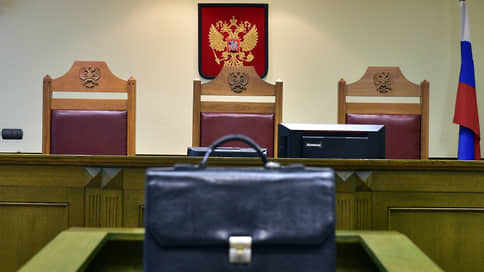The inaction of the manager does not always give grounds for the recovery of losses from him

The Supreme Court of the Russian Federation (BC) refused to recover from the arbitration manager (AU) losses for passing the limitation period when challenging the debtor’s transactions. Since previously the inaction of the manager was recognized as unlawful, the arbitration courts decided that the AU itself should prove its innocence. However, the Armed Forces admitted that the connection of the manager’s actions with the cause of damage to the competitive mass and, in principle, the presence of such damage should prove precisely the plaintiff. There were no grounds for the abolition of transactions, so the passage of the statute of limitations did not matter. This position protects AU from abuse of creditors, lawyers say.
The AC explained how the burden of proof in cases of recovery of losses with AU in bankruptcy is distributed. The dispute arose in the case of the insolvency of businessman Valery Israilite, the managing of which Anatoly Abaev was approved. One of the creditors, Nardvia Holdings Limited (Cyprus), noted that two litigation of the debtor’s transfers were lost due to missing the statute of limitations. According to Nardvia Holdings, the competitive mass did not receive hundreds of millions and the manager is responsible for this. In this regard, the creditor demanded to recover from Mr. Abaev 346.2 million rubles. losses.
The Arbitration Court of St. Petersburg referred to the fact that previously the inaction of the AU was recognized as illegal, so he shifted the burden of proof of the defendant. As a result, the first instance decided that the manager did not refute the existence of his guilt and causing damage, and satisfied the requirement of Nardvia Holdings. The appeal came to the opposite conclusions, considering that there is no causal relationship between the behavior of the AU and harm to the competitive mass, and the creditor did not prove the opposite. But then the dispute moved to the district cassation, which again recovered losses with AU.
Do not recover, you will have to prove
The manager appealed this to the Armed Forces, insisting on the incorrect distribution of the burden of proof. In his opinion, the courts that supported the demand of the Cypriot company took as the basis of their decisions only the act on recognizing the inaction of the AU illegal (see “Kommersant” of April 23). The case was transferred to the economy of the college, which on May 28 agreed with the arguments of Mr. Abaev.
The manager, explained the Sun, really should dispute the bankrupt transactions and is responsible for passing the limitation of the statute of limitations for them. However, in order to assign the obligation to compensate for losses, the plaintiff must prove the illegality of the inaction of the AU, the presence of damage and its size, the causal relationship between such behavior and harm.
In addition, the grounds for recognizing the deals of the debtor were not invalid, in connection with which the missing deadline for their contesting “did not lead to losses in the bankruptcy estate,” the Armed Forces. The conclusions of the cassation on the arrest of the burden on the manager of the housekeeping college recognized as erroneous. As a result, the board of judges upheld the decision of the appeal to refuse to recover losses with AU.
Unio Law Firm partner Maxim Salikov, who represented the interests of Anatoly Abaev in the Armed Forces, believes that the economy of the economy “stopped a very dangerous precedent”, which would allow to recover losses from the manager without the need to prove causal communication. It was not possible to contact Nardvia Holdings.
Useful inaction and formal activity
The lawyer of the bankruptcy practice of K&P.Group Arina Rudnitskaya says that the inaction of the AU is usually expressed in the failure to accept measures to ensure the safety of the property of the debtor, the dislike of receivables, this also includes the passage of the statute of limitations to dispute deals. Lenders, in turn, “carefully monitor the actions and inaction of the AU and try in this way to increase the competitive mass of the debtor and, therefore, the size of satisfying their requirements,” adds the adviser to the legikon-laws, Alexei Nekrasov.
Considering the claims of creditors to recover losses, the courts must first of all find out whether the manager of the “standard of reasonable and conscientious behavior” observed, says Arina Rudnitskaya. The fact is that “even the failure to prevent transplanting measures can be logical and explained in nature” if there is no real prospects to replenish the competitive mass, she clarifies. “The main thing is to prove that the impossibility of recovery is caused precisely by passing the term of the interests of the competitive mass due to the fault of the arbitration manager,” says Kambulat Karashev, senior lawyer of the Anticrisis and Bankruptcy Practice of the Lemchik, Krupsky and partners.
Experts surveyed by Kommersant support the position of the economy college. Arina Rudnitskaya emphasizes that the Armed Forces designated clear criteria for the recovery of losses and gave « priority to the real positive consequences for the property mass of the debtor. » Au Tatyana Pugacheva positively assesses the decision of the Armed Forces, since it « does not allow creditors to redistribute the burden of proof and unreasonably recover from the manager. »
Alexei Nekrasov hopes that the determination of the economy of the board will reduce the number of applications of creditors to the AU, « which are formal, are submitted without appropriate evidence, often » at random « , significantly complicating bankrupt cases. » Aleksey Antonov confirms that now unscrupulous lenders will not be able to blackmail the aircraft with lawsuits “for good luck”. At the same time, he clarifies, “the decision of the Armed Forces is not an indulgence”, but a signal that creditors need to work together with the manager.
At the same time, Mr. Nekrasov fears that the managers will mask intentional non -fulfillment of duties, giving them a “formally legal character”. For example, AU can specifically “file a lawsuit with weak argument and receive a judicial act with conclusions about the unproven grounds for challenging the transaction,” warns Kambulat Karashev.







